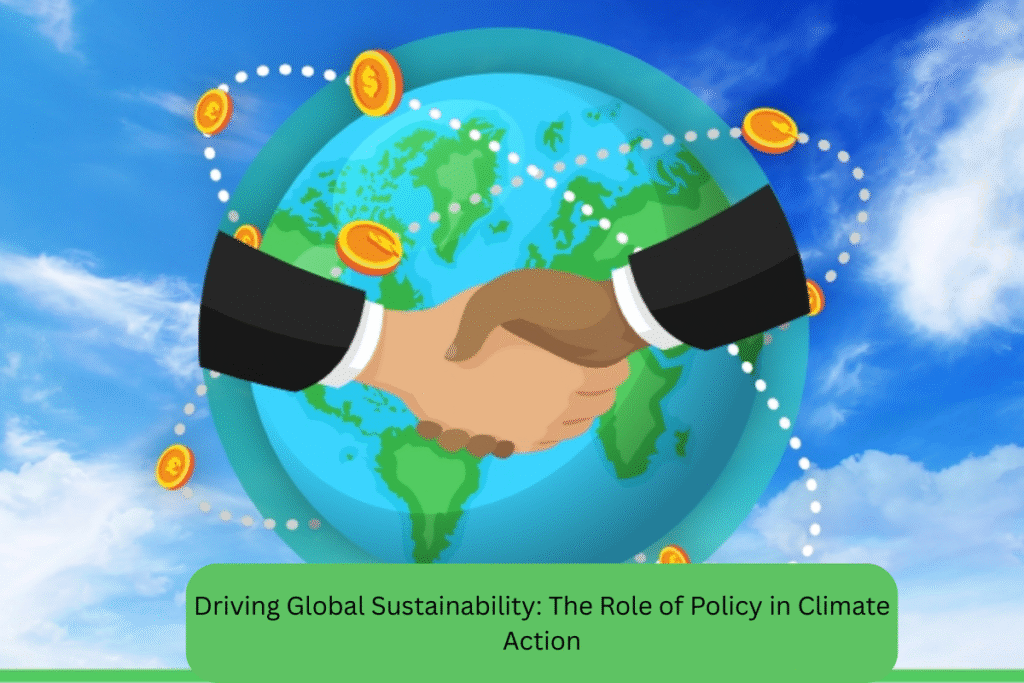
Climate change is the defining challenge of our time, and while technology, innovation, and individual action are essential, policy plays the most critical role in shaping global sustainability efforts. From international agreements to national climate laws and local regulations, effective policy frameworks create the structure needed for meaningful climate action.
Why Policy Matters in Climate Action
- Setting Targets and Accountability
Governments are responsible for setting legally binding climate targets such as carbon neutrality by 2050. Policies provide the framework to measure, track, and enforce these commitments. - Driving Renewable Energy Transition
Incentives, subsidies, and tax credits for solar, wind, and other clean energy solutions accelerate the shift away from fossil fuels. Without supportive policies, renewable adoption would be much slower. - Regulating Carbon Emissions
Policies such as carbon taxes, cap-and-trade systems, and emissions standards hold industries accountable for their environmental footprint. - Encouraging Green Innovation
Policy-backed funding for research and development drives technological breakthroughs in energy efficiency, carbon capture, and sustainable agriculture. - Global Cooperation
Agreements like the Paris Agreement demonstrate how international policy fosters collaboration across nations to tackle climate change collectively.
Key Examples of Climate Policy in Action
- European Union Green Deal – A roadmap for making Europe climate-neutral by 2050.
- United States Inflation Reduction Act (2022) – Provides historic investments in clean energy and emissions reduction.
- China’s Renewable Energy Mandates – The country is leading in solar and wind adoption due to strict national policies.
- India’s Renewable Energy Targets – Policy-driven expansion of solar power to reduce coal dependence.
The Road Ahead
To meet global climate targets, governments must align economic growth with sustainability. This means integrating climate policies into trade, transportation, urban planning, and even financial markets. Stronger collaboration between policymakers, businesses, and communities is essential to ensure that sustainability goals are met.
FAQs
Q1. Why is policy more effective than individual action in tackling climate change?
While personal choices matter, policies create systemic change by setting national and international standards, ensuring industries and governments are held accountable.
Q2. What is an example of successful climate policy?
The Montreal Protocol (1987) is a strong example, which successfully phased out ozone-depleting substances. It proves that global cooperation through policy works.
Q3. How do climate policies impact businesses?
They encourage businesses to adopt cleaner practices through carbon pricing, tax incentives, and sustainability reporting requirements, which also improve brand reputation.
Q4. Can developing countries implement strong climate policies?
Yes, but financial and technological support from developed countries and global institutions is crucial to balance economic growth with sustainability.
Q5. What role can citizens play in shaping climate policy?
Citizens influence policy by voting, lobbying, and supporting leaders who prioritize climate action. Public demand for sustainability pushes policymakers to act faster.
